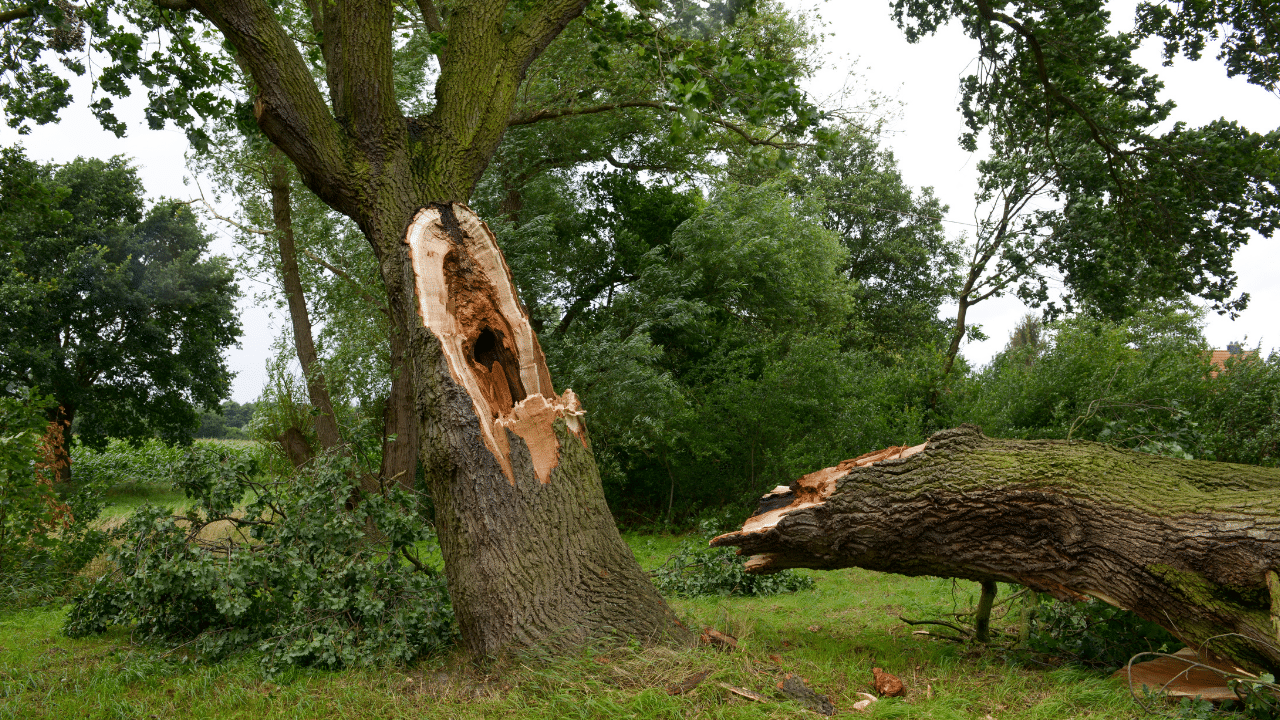While I was visiting North Carolina some years ago, a tornado tore through my neighborhood. A massive oak was ripped from the ground and barely missed my apartment. Afterwards, I surveyed the damage. What a giant the old oak was! But then I saw that the heart of the tree had rotted away; only a shell was left. It had been dying for years, and the storm had exposed its tenuous hold on life.
President Harry Truman stated to an Attorney General’s conference in 1950, “The fundamental basis of our Bill of Rights comes from the teachings we get from Exodus and Saint Matthew, from Isaiah and Saint Paul. I don’t think we emphasize that enough these days. If we don’t have a proper fundamental moral background, we will finally end up with a totalitarian government which does not believe in rights for anybody except the State.” That sounds uncomfortably familiar!
“Blessed is the nation whose God is the Lord.” (Ps 33:12) But people like me who’ve been around the block a few times look out on the nation and wonder what has become of us.
There is vigorous debate whenever someone claims the U.S. is a Christian country. Is that true? It depends on your definition. If by “Christian country” you’re thinking Muslim Iran or Buddhist Bhutan, then no, it isn’t. But if we mean the underlying principles of the nation align with the Bible’s teachings regarding human government, then there’s a case for calling it Christian.
Woodrow Wilson stated, “America was born to exemplify that devotion to the tenets of righteousness which are derived from the revelations of Holy Scripture.” Patrick Henry affirmed, “It cannot be emphasized too strongly or too often that this great nation was founded…not on religions, but on the gospel of Jesus Christ.” What did he mean?
Two basic assumptions from the gospel were made by the founders. First, every human is a sinner—and the most dangerous sinners are the ones in government because of the corrupting influence of power. Thus the citizenry must be protected by limiting government.
Second, humanity is directly connected to God with no intermediary divine right of kings or prelates. Thus we receive our rights—and the offer of eternal life—directly from our Creator.
These were radical ideas, yet those very tenets have largely been rejected by the nation who prospered under them.
Historian Arnold Toynbee, after examining the rise and fall of 32 empires, concluded that civilizations are not murdered; they commit societal suicide. In his book, Christianity and Religion, he writes, “Democracy is another leaf from the book of Christianity, which…has certainly been half emptied of meaning by being divorced from its Christian context and secularized; and we have obviously, for a number of generations past, been living on spiritual capital, I mean clinging to Christian practice without possessing Christian belief—and practice unsupported by belief is a wasting asset, as we have suddenly discovered, to our dismay, in this generation.”
America, like the old oak, has a heart problem. Must God say of us: “These people draw near with their mouths and honor Me with their lips, but have removed their hearts far from Me” (Isa 29:13)? No amount of money, education, or technology can fix this. “It is time to seek the Lord.” (Hos 10:12)
Religion Page article by Jabe Nicholson first published in the Commercial Dispatch on Sunday, Aug 29, 2021.
